Interpretation Run Amok Costs Wallabies Penalty Try
Interpretation Run Amok Costs Wallabies Penalty Try
Alex Goff looks more closely at the penalty try that wasn't, but should have been.
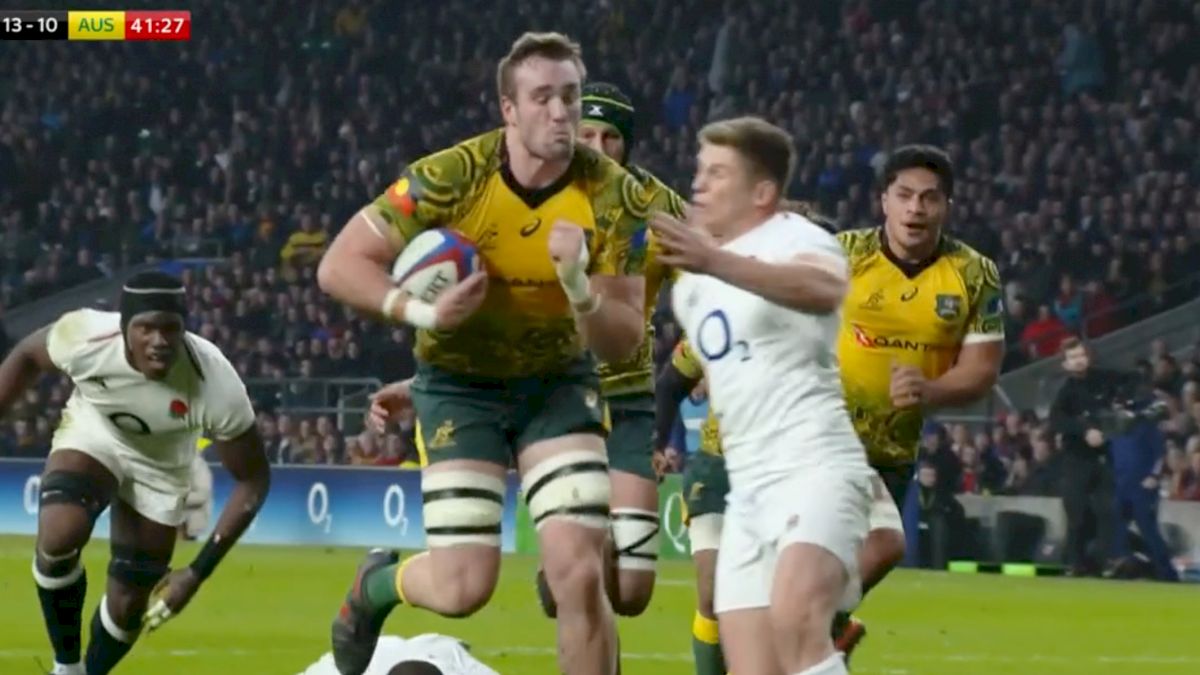
Unlock this article, live events, and more with a subscription!
Already a subscriber? Log In
Almost every criticism of rugby refereeing comes down to consistency; it's what the players and the coaches want.
If this action is a penalty in the 1st minute, or the 80th minute of a 75-0 blowout, or when it's 13-10 at halftime, it's a penalty regardless.
But referees often aren't consistent. That's because rugby is a sport of laws, not rules. The laws can be open for interpretation, and you can see a referee's eyes light up when he or she hears about that. I can interpret the laws? I can bring in a technicality that only I have considered and use it to adjudicate?
Oh yes.
So to Australia vs England and consistency of laws. Here's the quote from our friends at World Rugby and their law books:
A penalty try is awarded between the goal posts if foul play by the opposing team prevents a probable try from being scored, or scored in a more advantageous position. A player guilty of this must be cautioned and temporarily suspended or sent off. No conversion is attempted.
Very simple and direct. And yet, when England flyhalf Owen Farrell shoulder-charged Izack Rodda just before the tryline, no penalty try was awarded. There was a penalty, and Australia kicked that goal for three points to go into halftime tied 13-13, but it should have been 17-13 for Australia at the break. There is no doubt about that. None.
Referee Jaco Peyper just decided to invent some mitigating circumstance in order to put his own interpretation on the events.
Have a look at what happened in real time.
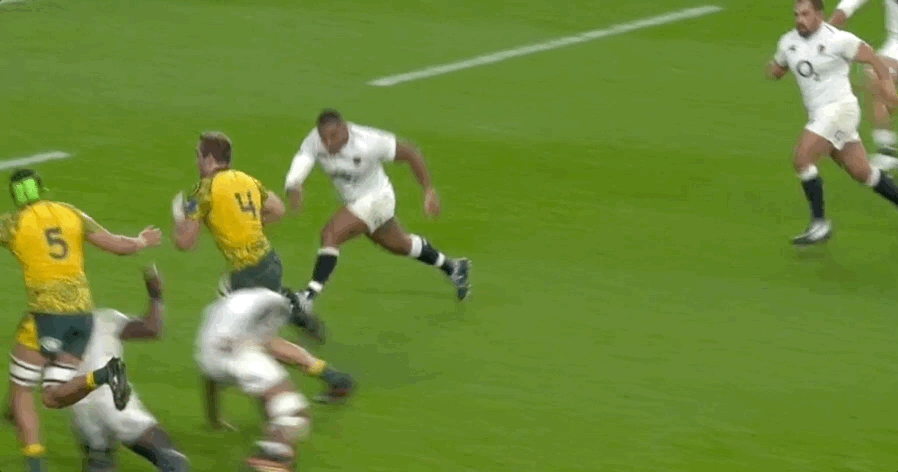
Now, you can forgive Peyper for not seeing it straight off, because it all happened so fast. But he had the opportunity to look at it again and again.
So can we. In this replay look at whether Farrell made any attempt to wrap. You will see he doesn't. In fact, he keeps his right arm straight down the side of his body. This is the very definition of a shoulder charge. It's illegal.
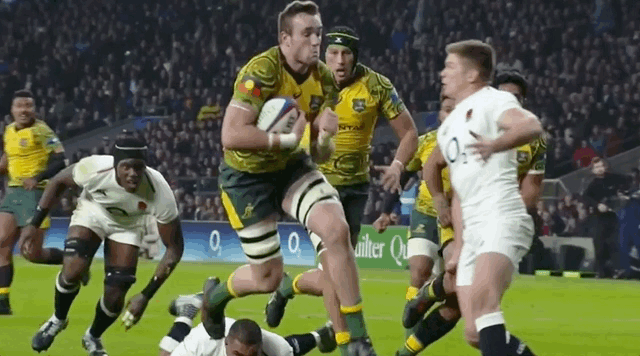
We agree? Good. Illegal tackle - a dangerous tackle.
Next up. Does that foul play prevent a try being scored? Well basically you have to look at it as this: Take that illegal tackle out of the equation, is it likely Rodda would have scored?
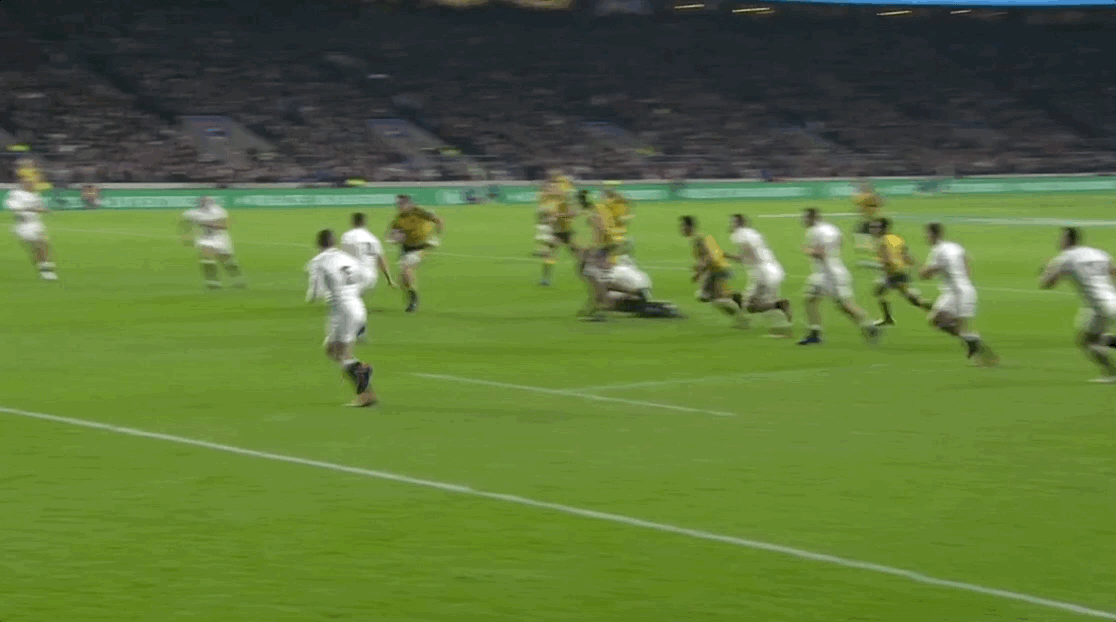
Umm ... yeah. There is only one player anywhere near Rodda other than Farrell, and it's pretty clear all Rodda had to do was keep angling to the right and he had a clean run to the line.
Case closed, penalty try.
Now, Peyper comes up with an intriguing explanation as to why he doesn't give a penalty try. Rodda, he says, put his shoulder into the collision. Most rugby players would answer along the lines of "yeah, so?"
Every rugby player is taught to lead with his or her shoulder. That's how you embrace contact and stay in control. Had Rodda stuck his elbow out to injury Farrell, maybe we'd have something to talk about, but he doesn't.
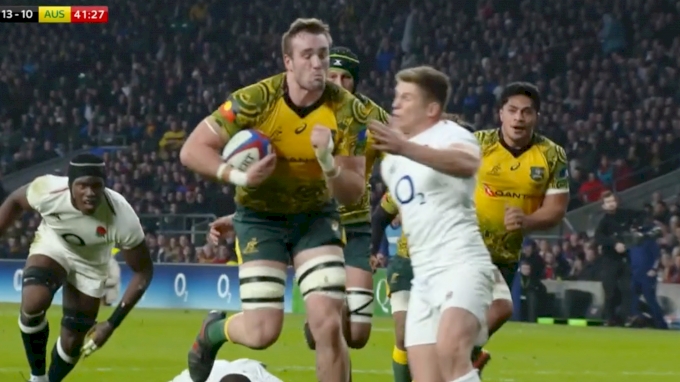
All he does it what millions of rugby players around the world are taught to do. This is referee interpretation run amok. This is taking a clear-cut situation, one which requires consistency of thought, and blows it all up.
Now, I will say I don't think this changed the course of the game. England was going to come out in the second half and blow the doors off regardless.
But that doesn't excuse a referee basically rewarding foul play by not applying the law book as written.